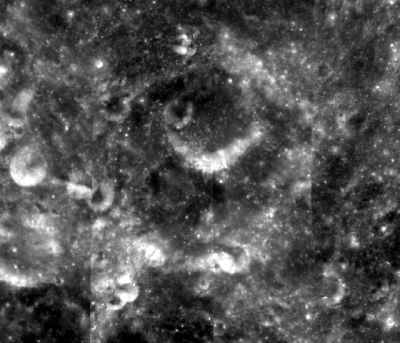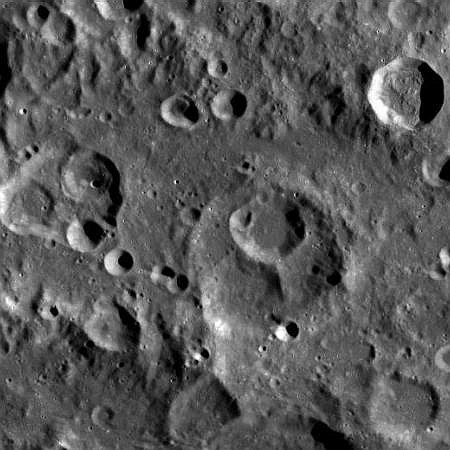Wilsing
Contents
Wilsing
| Lat: 21.5°S, Long: 155.2°W, Diam: 73 km, Depth: km, Rükl: (farside) |
Table of Contents


left: Clementine. right: LROC . Wilsing lies in the moat between the two prominent SPA basin rings; Wilsing C at upper right
Images
LPOD Photo Gallery Lunar Orbiter Images Apollo Images
Frame 39, made by Zond 8, shows Wilsing just above the frame's central cross.
Research: Danny Caes
Maps
(LAC zone 105B4) USGS Digital Atlas PDF
Description
Description: Wikipedia
Additional Information
Nomenclature
Johannes Wilsing (September 8, 1856 - December 23, 1943) was a German astronomer. In 1881 he joined the Astrophysical Observatory Potsdam (AOP) as an assistant, and would remain there until he retired. His early career was spent on solar studies, including observations of sunspots and derivations of the rotation period. In 1897 he measured the parallax of 61 Cygni, a relatively nearby star. He became an observer at the AOP in 1898, and the following year he collaborated with Julius Scheiner in an unsuccessful attempt to measure the radio emission from the Sun. The same year he attempted to interpret the spectrum of novae. He performed extensive work on the luminosity, colors, and diameters of stars.
LPOD Articles
Bibliography
This page has been edited 1 times. The last modification was made by - tychocrater tychocrater on Jun 13, 2009 3:24 pm - afx3u2